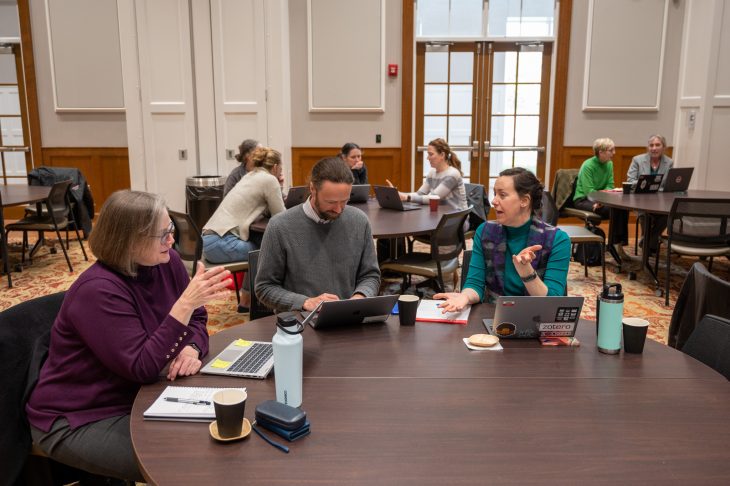
Transylvania faculty and students recently gathered for a workshop devoted to the promises and pitfalls of teaching in the age of artificial intelligence.
Digital Content and Technology Integration Specialist Julie Perino was prompted to host the workshop by the recent flurry of news regarding ChatGPT, noting “I think any opportunity to talk about this and help faculty understand it better is a good thing.”
The workshop, co-facilitated by Miami University professors Heidi A. McKee and James E. Porter, focused on the facilitators’ current research into AI composing technologies, as well as the ethical implications of AI-based writing systems.
The presenters examined the strengths and weaknesses of AI writing tools, highlighting the ability to generate and regenerate text in seconds and the ability to gather information from open-access research as potential strengths. However, they noted that, while ChatGPT might make a good writing aid, it cannot take the place of a human, citing bias and factual inaccuracies as two of the technology’s potential pitfalls. McKee and Porter suggested that faculty consider integrating AI writing into their courses in ways that encourage students to reflect on what’s working and what needs human intervention.
“Once students are looking at it, you can have an entire conversation about the voice it’s creating and if that’s the voice you want to create,” Perino explained, noting that artificial intelligence can function to show students their potential deficiencies as writers. “If you integrate working with ChatGPT early on, it can become a tool in the student’s arsenal and not just something they fall back on.”
The presentation was followed by an interactive assignment where participants asked AI to respond to one of their own writing assignment prompts and brainstormed ways to adapt current academic integrity policies to this new technology. These exercises proved particularly fruitful, as current terms of use for AI typically state that anything produced in a session is the property of the user — which has major implications for the definition of plagiarism.
“We need to really work on what we say we want students to do while writing and open up what we think of as collaborative writing,” Perino reflected. “The savvy teacher will build it into their classes.”

